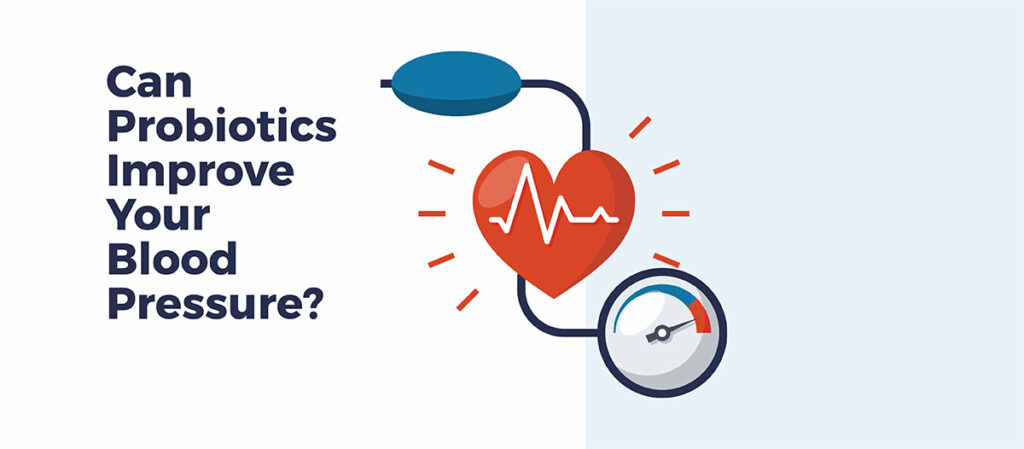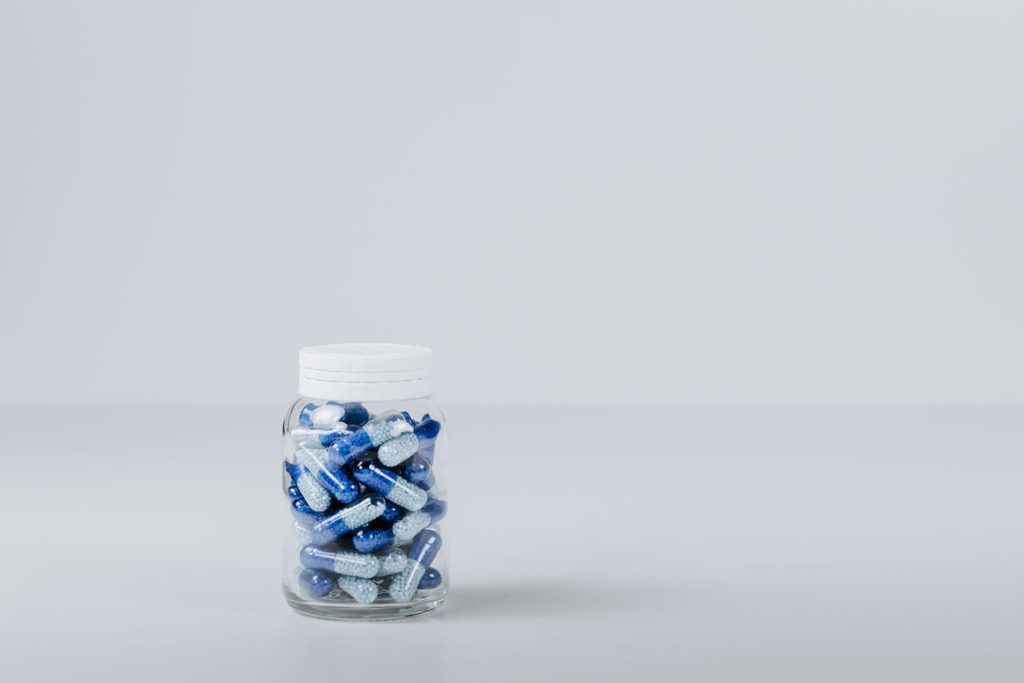Can Probiotics Improve Your Blood Pressure?
Summary: Probiotics may be helpful in lowering your blood pressure.
Nearly half of all American adults suffer from high blood pressure/hypertension for a lot of reasons, including consuming more sugar and salt from highly processed foods in their diets than ever before.
There are many ways to treat hypertension/blood pressure from simple lifestyle changes (getting more sleep, eating a less salty diet, incorporating more movement via exercise and maintaining a healthy weight) to taking medicines.
Unfortunately, many people rely solely on medications to help them manage their elevated blood pressure but 20 percent of all patients won’t respond to them at all, even when using multiple drugs.
Recent studies we’ve shared have shown how hypertension and your gut health are linked in very interesting ways with some medication combinations worsening blood pressure symptoms.
So, we weren’t surprised to learn that a multi-species probiotic formulated with strains from the Lactobacillus and Bifidobacterium families was responsible for lowering blood pressure numbers to normal levels, according to a recent study appearing in mSystems.
Multi-species probiotics for the win!
A team of Chinese researchers tested the benefits of multi-strain probiotics on hypertension in a study with mice fed water mixed with sugar that had elevated their blood pressures to unhealthy levels.
Over 16 weeks, scientists compared blood pressure readings of test animals that received a probiotic containing Lactobacillus rhamnosus and Bifidobacterium lactis to a group of mice that didn’t receive one and a control group fed water without sugar.
(These two strains of beneficial bacteria are among the building block species featured in EndoMune Advanced Probiotic.)
The most interesting finding from the report: Blood pressure levels among mice treated with a multi-strain probiotic were healthy and no different than mice only fed water. Also, scientists identified gut bacteria signatures in probiotic mice that were typical among people with lower pressures.
The results were so positive that this research team is planning a larger clinical trial to discover if these same probiotic benefits hold up for humans.
We expect to hear similar rave reviews for probiotics, given the results of a recent study touting the benefits of prebiotics lowering blood pressure levels among people equal to that of blood pressure medications.
Just another reason that taking a probiotic with multiple strains of beneficial bacteria and a prebiotic like EndoMune can make a world of difference to your health and your gut, the center of your immune system
References
mSystems
American Society For Microbiology
CDC
Mayo Clinic
Can Probiotics Improve Your Blood Pressure? Read More »


